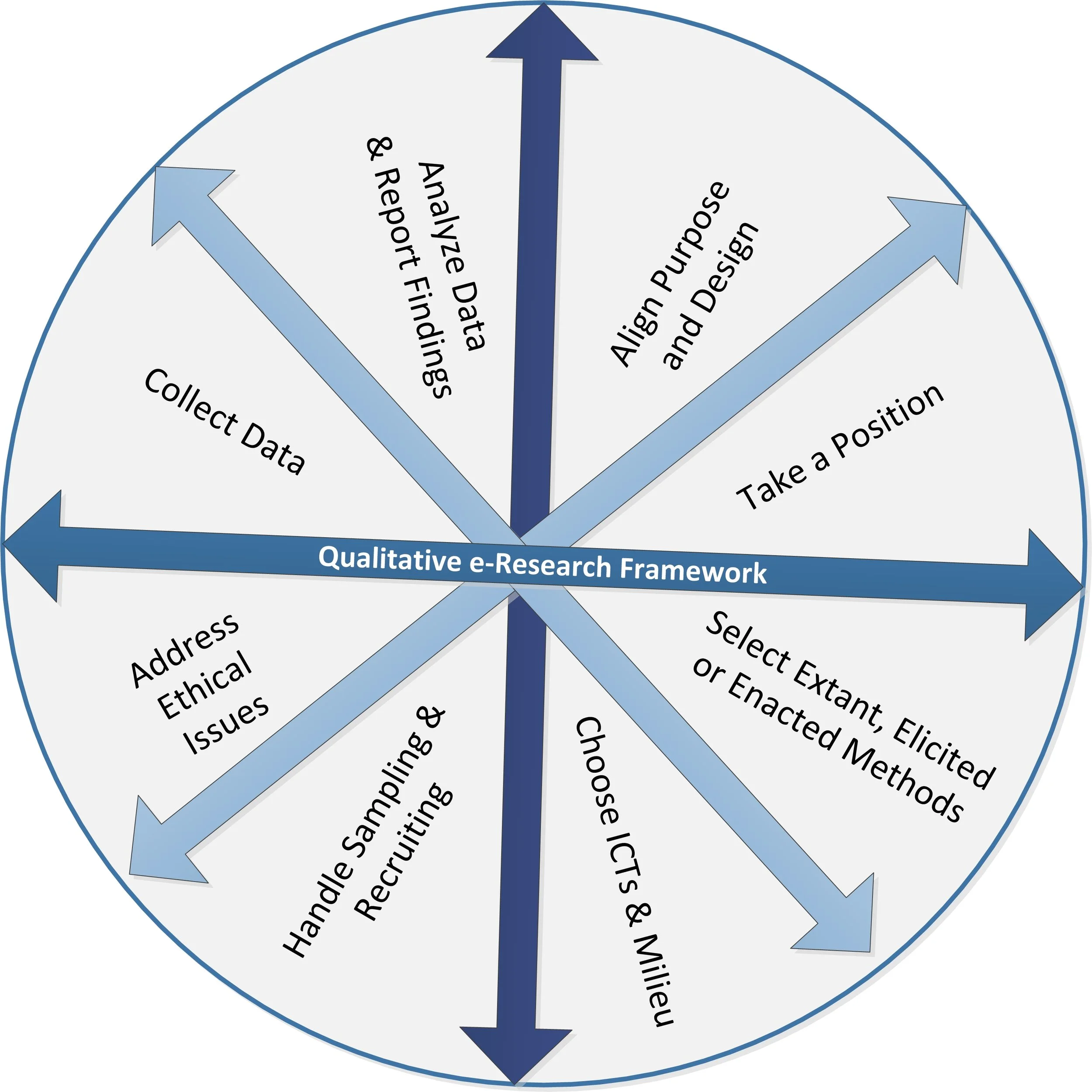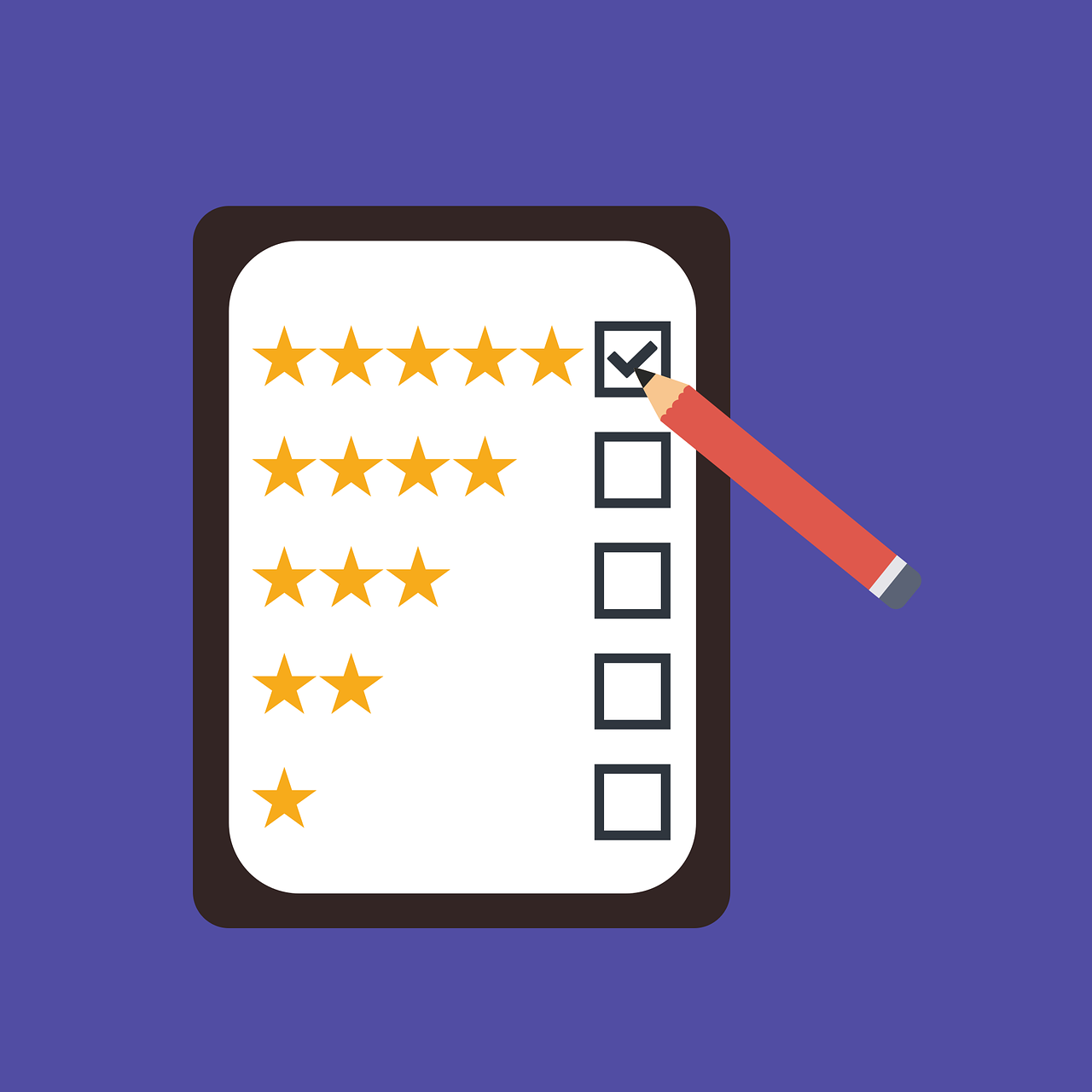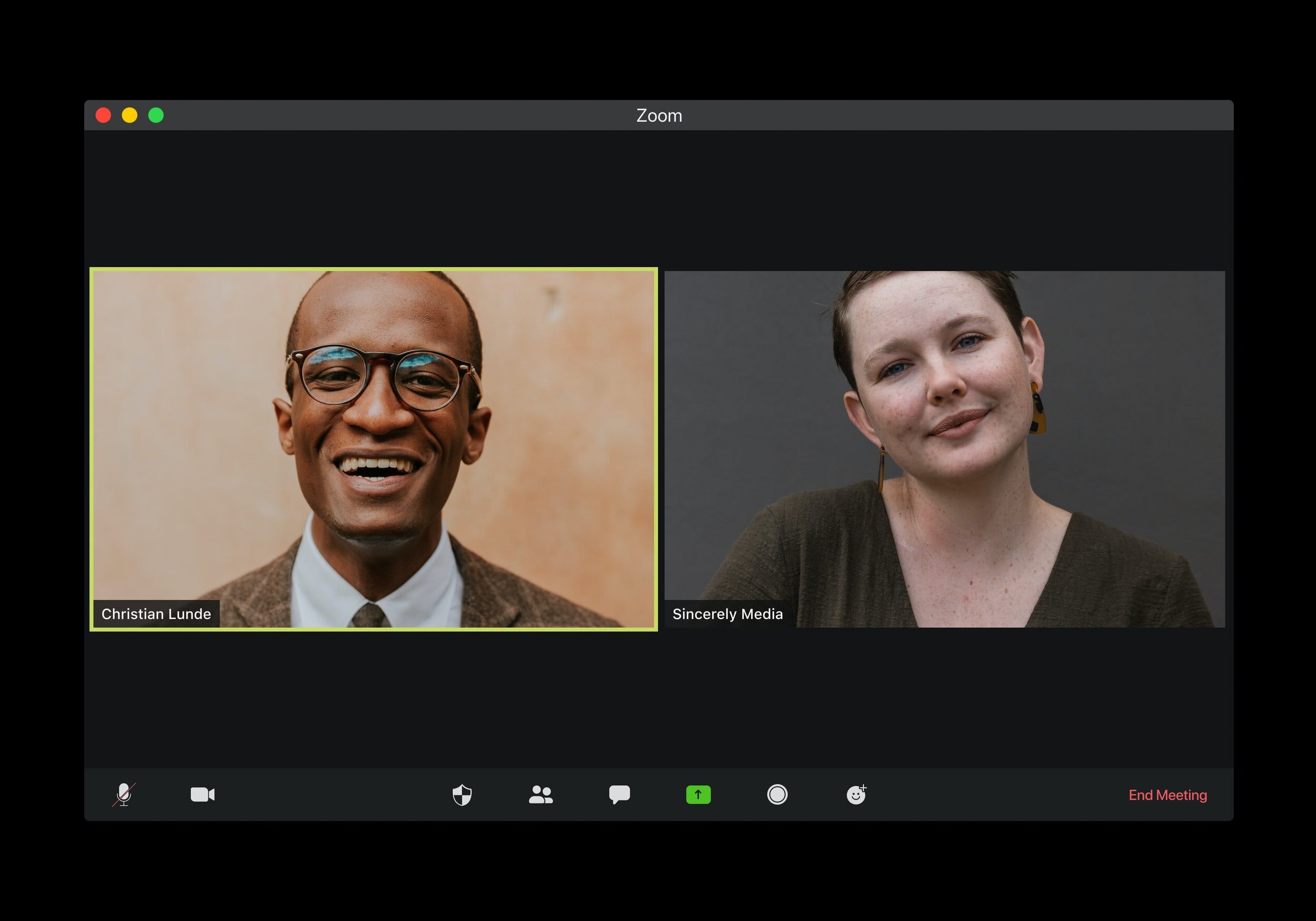Holistic Thinking and Qualitative E-Research Design
by Janet Salmons, PhD Manager for Sage Research Methods Community
Dr. Salmons is the author of a series of books, including a new edition of Doing Qualitative Research Online. She will be a research fellow at the Center for Advanced Internet Studies in Bochum, Germany in 2024. Dr. Salmons will be offering a special webinar from the Center for Advanced Internet Studies: “How to do research in a digital world.” Registration is now open for this free May 7 event. Find your time zone here.
Use the code COMMUNIT24 for 25% off through December 31, 2024 when you purchase the book from Sage.
Qualitative research design is challenging. Technology adds new considerations.
All researchers are faced with a set of design decisions, and the challenge of creating a plan that shows how all the pieces fit together. Online researchers face additional challenges, because they must also consider the implications of the technologies used in the study. Technology tools and platforms are not neutral. The technology itself has an influence on the study, whether we are using online communications with stakeholders and participants, an app for a survey, or an online archive where we find extant data.
I created an E-Research Framework as a model researchers can use to evaluate their choices. It is presented as a circle to show that the design process is iterative and holistic, not linear.
Let’s look at key questions for each part of the framework.
Aligning purpose and design in qualitative e-research:
Are theories and epistemologies, methodologies, and methods appropriate for the study?
Have all elements of the design been fully addressed?
Taking a position as a researcher undertaking qualitative e-research:
Are you transparent about taking an insider or outsider position?
Do you explain implications related to your position, including any conflicts of interest or risks of researcher bias?
Selecting extant, elicited, or enacted methods for collecting data online:
Do data collection methods fit the purpose of the study, in the context of the research problem and population?
Are ICT functions, features, and/or limitations addressed with the selected approach(es)?
Are the specific methods (interviews, observations, document reviews, etc.) appropriate to the study?
Selecting information and communications technologies (ICTs) and the setting for qualitative e-research:
What ICT features will be used and why?
Will the study collect text-based, audio, and/or visual data?
Will the setting be in a public or private online milieu?
Handling sampling and recruiting in qualitative e-research:
Will the study engage human participants? If so, what sampling approaches are appropriate given the purpose of the study and target population?
Will participants be recruited online, if so, how?
In a study using extant data, how will archives or datasets be selected? What criteria will be used for selection of specific documents, posts or user-generated content?
Addressing ethical issues in qualitative e-research:
Have you taken appropriate steps to protect human subjects and, where appropriate, their avatars or online representations?
Have you obtained proper informed consent?
Do you have permission to access and use posts, documents, profiles, or images?
Have you committed to acting with integrity in all phases and contacts with others throughout the study?
Collecting the data online in qualitative e-research:
Are you experienced with all features of the selected technology?
For studies using extant methods, are you familiar with the setting, archive, databases, or other online environment where the data will be collected?
Are you familiar with programming or software tools needed to collect Big Data or to mine or trawl for data?
Do you have a plan for recording observations?
For studies using elicited or enacted methods, do you have a plan for conducting interviews, focus groups, or other interactions with participants with either prepared questions or a guide?
Analyzing the data and reporting on qualitative e-research:
Do you have a plan for preparing, organizing, and coding all types of data?
Do youthe proper permissions for using image, excerpts, or quotations in published reports?
For in-depth explanations and guidance, see Doing Qualitative Research Online. Use the code COMMUNIT24 for 25% off through December 31, 2024 when you purchase the book from Sage.
Learn more!
Find full text of the first edition of Doing Qualitative Research Online, as well as Qualitative Online Interviews and Cases in Online Interview Research, on SAGE Research Methods. If you don’t have access to this database through an academic library, you can explore it with a free trial.



















Informed consent is the term given to the agreement between researcher and participant. In this post Janet Salmons offers suggestions about the intersections of the Internet communications, ethics and participants.